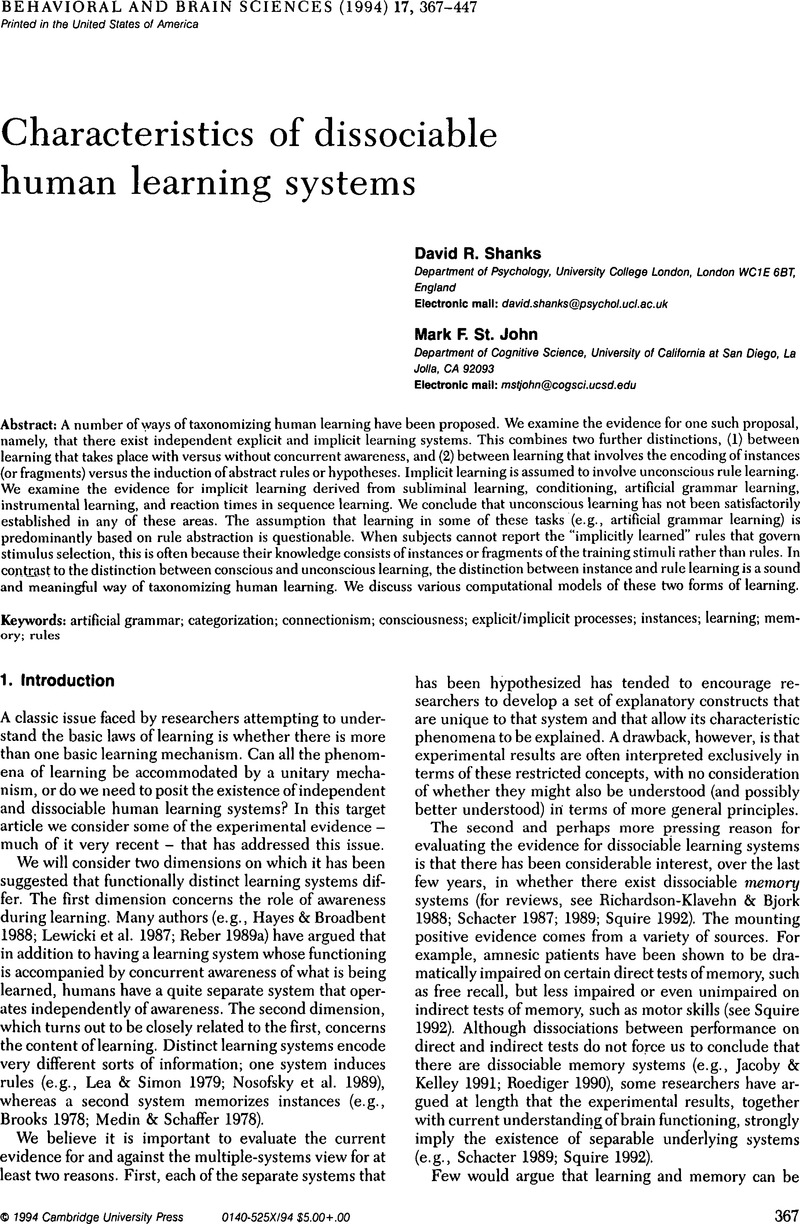Crossref Citations
This article has been cited by the following publications. This list is generated based on data provided by Crossref.
Baeyens, Frank
and
De Houwer, Jan
1995.
Evaluative conditioning is a qualitatively distinct form of classical conditioning: a reply to Davey (1994).
Behaviour Research and Therapy,
Vol. 33,
Issue. 7,
p.
825.
BAEYENS, FRANK
KAES, BART
EELEN, PAUL
and
SILVERANS, PETER
1996.
Observational evaluative conditioning of an embedded stimulus element.
European Journal of Social Psychology,
Vol. 26,
Issue. 1,
p.
15.
de Houwer, Jan
Hendrickx, Hilde
and
Baeyens, Frank
1997.
Evaluative Learning with “Subliminally” Presented Stimuli.
Consciousness and Cognition,
Vol. 6,
Issue. 1,
p.
87.
Field, Andy P.
2000.
I Like It, but I'm Not Sure Why: Can Evaluative Conditioning Occur without Conscious Awareness?.
Consciousness and Cognition,
Vol. 9,
Issue. 1,
p.
13.
De Houwer, Jan
2001.
Contingency Awareness and Evaluative Conditioning: When Will It Be Enough?.
Consciousness and Cognition,
Vol. 10,
Issue. 4,
p.
550.
Hermans, Dirk
Vansteenwegen, Debora
Crombez, Geert
Baeyens, Frank
and
Eelen, Paul
2002.
Expectancy-learning and evaluative learning in human classical conditioning: affective priming as an indirect and unobtrusive measure of conditioned stimulus valence.
Behaviour Research and Therapy,
Vol. 40,
Issue. 3,
p.
217.
Stewart-Williams, Steve
and
Podd, John
2004.
The Placebo Effect: Dissolving the Expectancy Versus Conditioning Debate..
Psychological Bulletin,
Vol. 130,
Issue. 2,
p.
324.
Houwer, Jan De
Baeyens, Frank
and
Field, Andy P.
2005.
Associative learning of likes and dislikes: Some current controversies and possible ways forward.
Cognition and Emotion,
Vol. 19,
Issue. 2,
p.
161.
Armel, K. Carrie
Pulido, Carmen
Wixted, John T.
and
Chiba, Andrea A.
2009.
The smart gut: Tracking affective associative learning with measures of “liking”, facial electromyography, and preferential looking.
Learning and Motivation,
Vol. 40,
Issue. 1,
p.
74.



